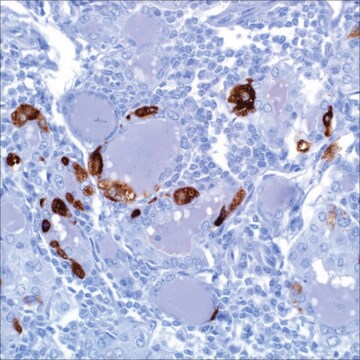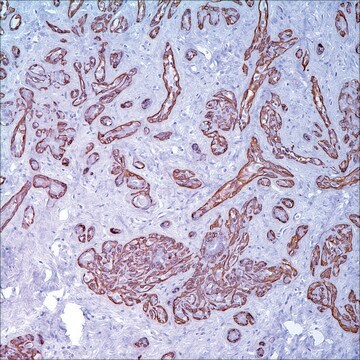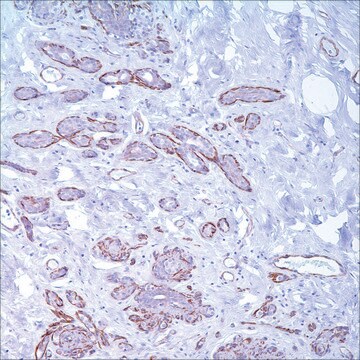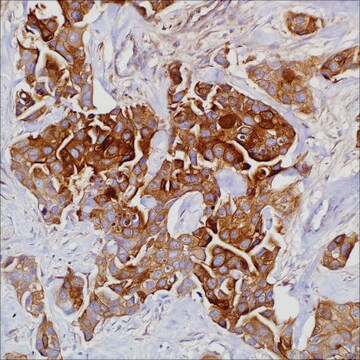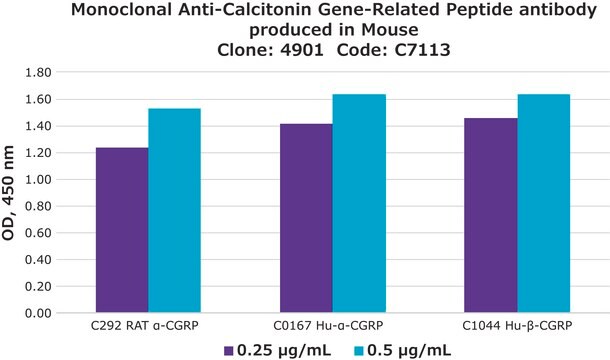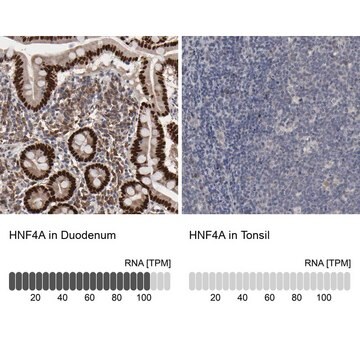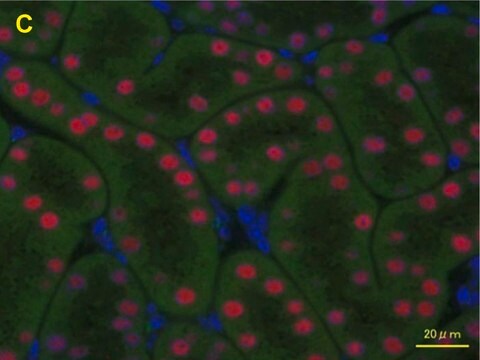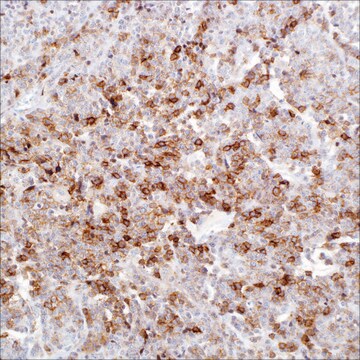229A-1
Calcitonin Rabbit Polyclonal Antibody
About This Item
Produits recommandés
Source biologique
rabbit
Niveau de qualité
100
500
Conjugué
unconjugated
Forme d'anticorps
Ig fraction of antiserum
Type de produit anticorps
primary antibodies
Clone
polyclonal
Description
For In Vitro Diagnostic Use in Select Regions (See Chart)
Forme
buffered aqueous solution
Espèces réactives
human
Conditionnement
vial of 0.1 mL concentrate (229A-14)
vial of 0.5 mL concentrate (229A-15)
bottle of 1.0 mL predilute (229A-17)
vial of 1.0 mL concentrate (229A-16)
bottle of 7.0 mL predilute (229A-18)
Fabricant/nom de marque
Cell Marque™
Technique(s)
immunohistochemistry (formalin-fixed, paraffin-embedded sections): 1:200-1:1000
Contrôle
medullary carcinoma of thyroid
Conditions d'expédition
wet ice
Température de stockage
2-8°C
Visualisation
cytoplasmic
Description générale
Immunohistochemical staining with anti-calcitonin antibodies has proven to be an effective way of demonstrating calcitonin-producing cells in the thyroid. C-cell hyperplasia and medullary thyroid carcinomas stain positive for calcitonin. Studies of calcitonin have resulted in the identification of a wide spectrum of C-cell proliferative abnormalities.
Liaison
Forme physique
Notes préparatoires
Autres remarques
Informations légales
Vous ne trouvez pas le bon produit ?
Essayez notre Outil de sélection de produits.
Faites votre choix parmi les versions les plus récentes :
Certificats d'analyse (COA)
Vous ne trouvez pas la bonne version ?
Si vous avez besoin d'une version particulière, vous pouvez rechercher un certificat spécifique par le numéro de lot.
Déjà en possession de ce produit ?
Retrouvez la documentation relative aux produits que vous avez récemment achetés dans la Bibliothèque de documents.
Notre équipe de scientifiques dispose d'une expérience dans tous les secteurs de la recherche, notamment en sciences de la vie, science des matériaux, synthèse chimique, chromatographie, analyse et dans de nombreux autres domaines..
Contacter notre Service technique